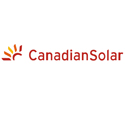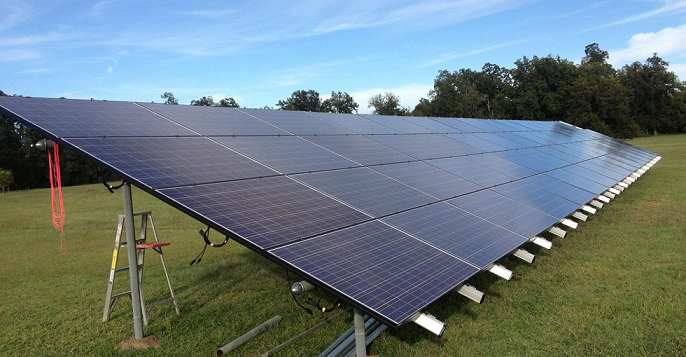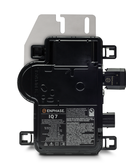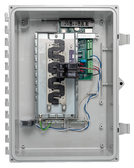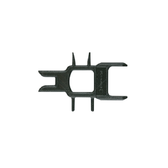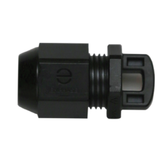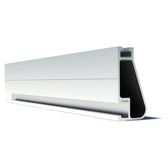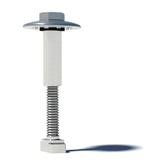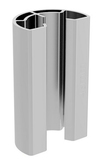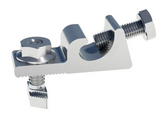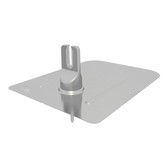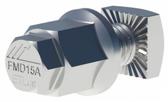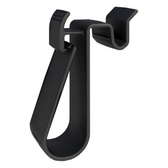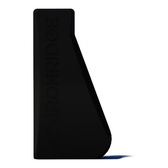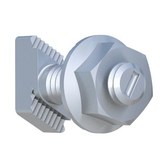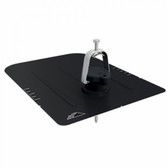 Loading... Please wait...
Loading... Please wait...- Home
- Solaris Blog
- Canadian Solar Panels: The Complete Review
Products
- DC Appliances
- Solar Refrigerators and Freezers
- Solar Panel Kits
- Solar Panels
- Solar Generators
- Inverters
- Inverter Monitoring
- Inverter Accessories
- Balance of Systems
- Racking and Mounting
- Rails
- Flashings
- Splice Kits
- Stopper Sleeves
- Conduit Mounts
- Attachments
- Brace Assembly
- Base Mount
- Brackets
- Bolts
- Clamps
- Caps
- L-Feet
- Washers
- Skirt
- Lugs
- Tilt Legs
- Hooks
- Stand-Offs
- Ballast Bay
- Top of Pole Mount
- Side of Pole Mount
- Flush Mount Kits
- Ground Mount Kits
- Roof Mount Kits
- Hardware Packages
- Wire Management
- Batteries
- Battery Accessories
- Charge Controllers
- Tools and Supplies
- View All Products
Canadian Solar Panels: The Complete Review
Posted by Brandi Casey on 7th Jul 2019

Canadian Solar is a solar panel manufacturer based in Ontario, Canada and is one of the three largest solar manufacturer companies in the world. Canadian Solar has facilities in Canada, China, Brazil and other countries. They manufacture quality driven, value-based PV modules - and are one of the most popular modules DIY homeowners and commercial integrator's pick for their projects. Canadian solar panels drive a lower price point, with average efficiencies, and an industry standard warranty.
Founded in 2001, Canadian Solar uses state-of-the-art manufacturing to deliver high-efficiency solar panels on a world-wide scale. To date, they have delivered over 33 gigawatts of premium PV modules to consumers globally. In 2018, Canadian Solar was listed as Bloomberg New Energy Finance’s Tier 1 Module Manufacturer and was named as Top 3 Global Utility-Scale Solar PV Project Developer for 2017 by GTM Research.
Their solar cells utilize a number of innovative energy technologies such as: bi-facial, high density, high watt, and high efficiency. The solar modules are available in both 60 and 72 cells as well as half cells (120 and 144) - which are known to improve the energy efficiency of modules while maintaining compatibility with inverter, charge controller and battery technologies.
For consumers who value aesthetics, Canadian Solar offers a number of solar panel design options including black on black, black on white and clear or silver frames. In addition to the number of choices in technology, sizing and designs, Canadian Solar also comes at an attractive mid-range price point.
In this complete review of Canadian Solar panels, we will be looking at the following:
- Specifications, Pricing, and Options
- Average Cost per Watt Comparison
- Module and Cell Efficiency
- Canadian Solar’s Warranty
- Calculating Potential ROI
- Canadian Solar 9.75kW Solar Power System
- And Solaris Recommendations
See Here: Canadian Solar Panels for Sale
Specifications, Pricing, and Options
Canadian Solar offers a wide range of high watt modules that take advantage of a number of technologies with a focus on efficiency. These factors and attention to quality contribute to lower start up costs and shorter ROI periods. Which module solution you select will largely depend on your application, budget and aesthetic preferences. To get a better idea of which line best suits you, check out Canadian Solar’s lines below.
| Cell Technology | Wattage Range | Highlights | Special Applications | |
BiKu |
Bifacial | 280 to 380W |
- Up to 30% more energy yield - Better shading tolerance - Heavy snow load (8100 Pa) |
Free standing racking |
BiHiKu |
Bifacial | 400W+ |
- Up to 30% more energy yield - 24% more power generation - Better shading tolerance - Heavy snow load (5400 Pa) |
Free standing racking Low irradiance |
HiDM |
High Density Shingle | 320 to 340W |
- Better shading tolerance - Lower internal current - Lower hot spot temperature - Heavy snow load (5400 Pa) |
Low irradiance |
MaxPower |
72 Cells | 310 to 340W |
- High performance and energy yield - Robust construction - Heavy snow load (6000 Pa) |
All systems |
All-Black |
Low Irradiance | 265 to 295W |
- High energy yield - Outstanding low-light performance - 411 quality control points |
Low irradiance |
Ku |
High Efficiency | 335 to 395W |
- Higher power for equivalent module sizes - Low power loss - Increased module reliability |
All systems |
HiKu |
Polycrystalline | 400W+ |
- 24% more power than equivalent modules - Up to 4.5% lower LCOE* - Heavy snow load (5400 Pa) |
All systems |
Standard |
60 Cells | 260 to 285W |
- High performance and energy yield - High snow load (6000 Pa) - 411 quality control points |
All systems |
Dymond |
Double Glass | 315 to 340W |
- Robust module construction - Sea/waterside PV installation - High resistance to extreme weather - Lower annual power degradation |
Harsh environments |
Availability of Canadian Solar’s line varies. To get a better idea of how the costs and specs compare, we have put together a list available popular models below.
|
|
CS6K-300MS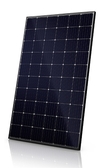 |
CS3K-305MS |
CS3K-310MS |
CS1H-325MS |
CS3U-375MS |
| Watts | 300 | 305 | 310 | 325 | 375 |
| P-Type | Mono | Mono | Mono | Mono | Mono |
| Series | SuperPower | KuBlack | KuBlack | HiDM | KuMax |
| Price/Watt* | $0.63 | $0.69 | $0.71 | $0.76 | $0.66 |
| Starting Price* | $190 | $210 | $220 | $247 | $248 |
| Efficiency | 18.33% | 18.36% | 18.66% | 19.27% | 19.15% |
| Dimensions | 65.00 x 39.10 x 1.35 in. | 65.90 x 39.10 x 1.38 in. | 35.90 x 39.10 x 1.38 in. | 66.90 x 39.10 x 1.38 in. | 78.70 x 39.10 x 1.57 in. |
| Weight | 40.10 lbs | 40.80 lbs | 40.80 lbs | 42.30 lbs | 49.80 lbs |
| Cells | 60 | 120 Half Cells (60) | 120 Half Cells (60) | 120 Half Cells (60) | 144 Half Cells (72) |
| Isc | 9.83 A | 9.90 A | 9.98 A | 9.58 A | 10.01 A |
| Voc | 39.70 V | 39.50 V | 39.70 V | 43.40 V | 47.60 V |
| Imp | 9.24 A | 9.33 A | 9.43 A | 9.09 A | 9.43 A |
| Vmp | 32.50 V | 32.70 | 32.90 V | 35.80 V | 39.80 V |
| Docs |
Specs Warranty |
Specs Warranty |
Specs Warranty |
Specs Warranty |
Specs Warranty |
*Prices reflective of current pricing as of the posting of this article. Click on panel image to check current pricing.
Average Cost per Watt
Canadian Solar modules are available at the mid range price point of $0.68/watt on average. This figure comes $0.10 above Longi Solar's average cost of $0.58/watt, but below high-cost modules such as LG ($1.03/watt). Canadian Solar and Mission Solar come in at the same average cost per watt, however Canadian Solar has a slightly better efficiency rating on average.
| Manufacturer | Average Cost | Average Efficiency | Warranty |
| Canadian Solar | $0.68/watt | 18.73% | 10-yr Product | 25-yr Performance |
| Longi Solar | $0.58/watt | 18.38% | 10-yr Product | 25-yr Performance |
| Mission Solar | $0.68/watt | 18.65% | 10-yr Product | 25-yr Performance |
| LG Solar | $1.03/watt | 19.9% | 25-yr Product | 25-yr Performance |
*Price averages reflective of current pricing as of the posting of this article.
Which manufacturer and model you select for your system is largely dependent on your budget and installation site conditions. As outlined above, Canadian Solar is recommended for a number of environmental climates from average sun hours to low irradiance. The modules also have a standard and high temperature ranges depending on the panel you select. It is important to consider your individual installation before selecting your module. With Canadian Solar's wide offerings, there is sure to be a module to meet your budget and special circumstances.
Module and Cell Efficiency
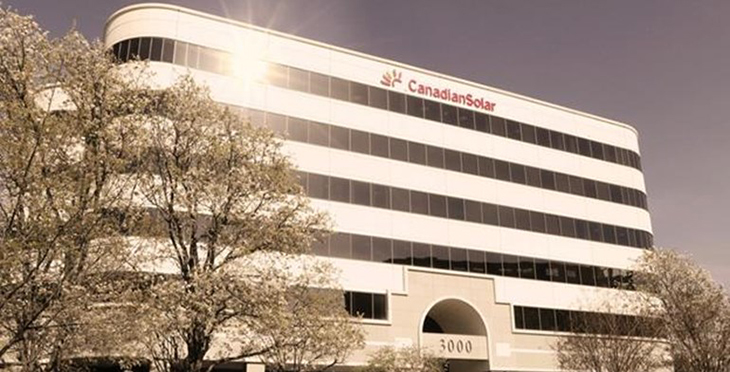
*Canadian Solar United States headquarters Walnut Creek, CA
Canadian Solar was among the first to offer modules that have a higher efficiency rating in low irradiance (low sun hours, more than average cloudy days, etc.) environments. Their average relative efficiency is measured at 97.5% under such conditions, making Canadian Solar a prime pick for those who live in areas with less than ideal solar conditions. This is not to say that the technology should to be used in high sun environments, the modules have high temperature standards which enable them to work in almost any environment.
In addition, their split cell modules come at a high efficiency rating than standard 60 and 72 cell modules due to low power loss in the cell connection. Split cell modules are compatible with all inverters that their 60 and 72 cell counterparts are, for example, 120 cell split cell modules work with Enphase IQ7 microinverters in the same way that their 60 cell counterparts do. Due to the fact that the cells are smaller, cell cracking risk is limited which makes the modules more reliable.
Canadian Solar utilizes PERC cell technology which produces higher power classes than equivalent modules, higher efficiency and lower hot spot temperature risk. Although solar panels produce energy best under direct sunlight, too high of temperatures can lead to loss in efficiency or overheating of the module, therefore it is important to note module temperature coefficients to ensure the panels will work in your area.
Canadian Solar's Warranty
Canadian Solar modules come with 10 year product and 25 year performance warranties. The 10 year product warranty ensures that the module is free from defects in both materials and workmanship that may have an effect on functionality under normal installation standards.The 10 year product warranty is standard for the solar industry (though some manufacturers provide 12 and 25 year product warranties). The 25 year performance warranty guarantees that power declines between 2-25 years will be no more than 0.7%, and that by the end of year 25 the actual power output will be no less than 80.7% the labeled output of the module.
See Here: Canadian Solar Warranty
Calculating Potential ROI
*Canadian Solar ground mount power system
In order to gain a better understanding of the potential return on investment when using Canadian Solar on your solar array, we went ahead and created a 9.75kW grid-tied, roof mounted system.
The system includes: Canadian Solar CS1H-325MS solar panels, IQ7 Enphase microinverters (with monitoring and accessories), and complete IronRidge XR100 racking system. The system was designed in a 2 x 15 portrait orientation. Below is the diagram of the racking array.

Canadian Solar 9.75kW Grid-Tied Solar Power System
*Prices reflective of current pricing as of the posting of this article. Click on the item image to check current pricing. Does not include potential taxes and fees which may apply. Prospective system owners will also need a permit plan.
Our 9.75kW system costs an average of $14,003.82 (before taxes or area specific fees). This comes out to $1.43 per watt for the entire Canadian Solar power system. To calculate the average energy savings of this system we based our calculations on 100% offset for a California home.
The system should be producing an estimated 16,800kWh annually, or 1,400kWh on a monthly basis. By taking the average cost of per kilowatt hour in the United States ($0.12/kWh) and multiplying it by the estimated monthly usage, we can determine how much money the system will save per month.
Solaris Tip: The average kWh usage in the United States on a monthly basis is 900kWh. If you are unsure of your total usage and just making some basic calculations, you can use the estimated 900kWh average.
This system will produce 1,400kWh per month, which would generate an average savings of $168 per month. In order for the system to pay for itself (excluding rebates and incentives, and possible costs of installation) will take approximately 84 months, or 7 years.
This rate is quite good considering the system is warrantied to last 25 years, and may last longer.
Learn Here: How to size your system
Solaris Recommendations
Canadian Solar is a great choice for both residential and commercial solar systems due to their high efficiency, mid-range price point and reliability. With the number of solar panel options available, you are also sure to find a solar panel to fit special installation conditions.
The 7 year ROI period noted on our example system is impressive, and power generation after this initial time-frame gives an 18 year window to effectively save on future energy use.
Canadian Solar comes in at a higher price point than Longi Solar, but makes up for this increase with higher efficiency ratings. Which solar module you choose will ultimately depend on your budget and site conditions.
Their ROI period of 10 year product and 25 year performance is industry standard, and guarantees an impressive 80.7% output at the end of 25 years. This output is met for some Mission Solar modules series, and exceeded in others (80.2% for Mission Solar P-type mono panels).
In closing, Canadian Solar is a great option for those seeking to go solar on a budget without sacrificing quality. Their warranty period, number of options, and overall efficiency ratings makes them stand out when compared to similar modules in their price range. In addition, Canadian Solar's technology has advanced rapidly over the last few years, yielding over 1% increases in efficiency in a relatively short period of time.
Read More: Mission Solar Complete Review


